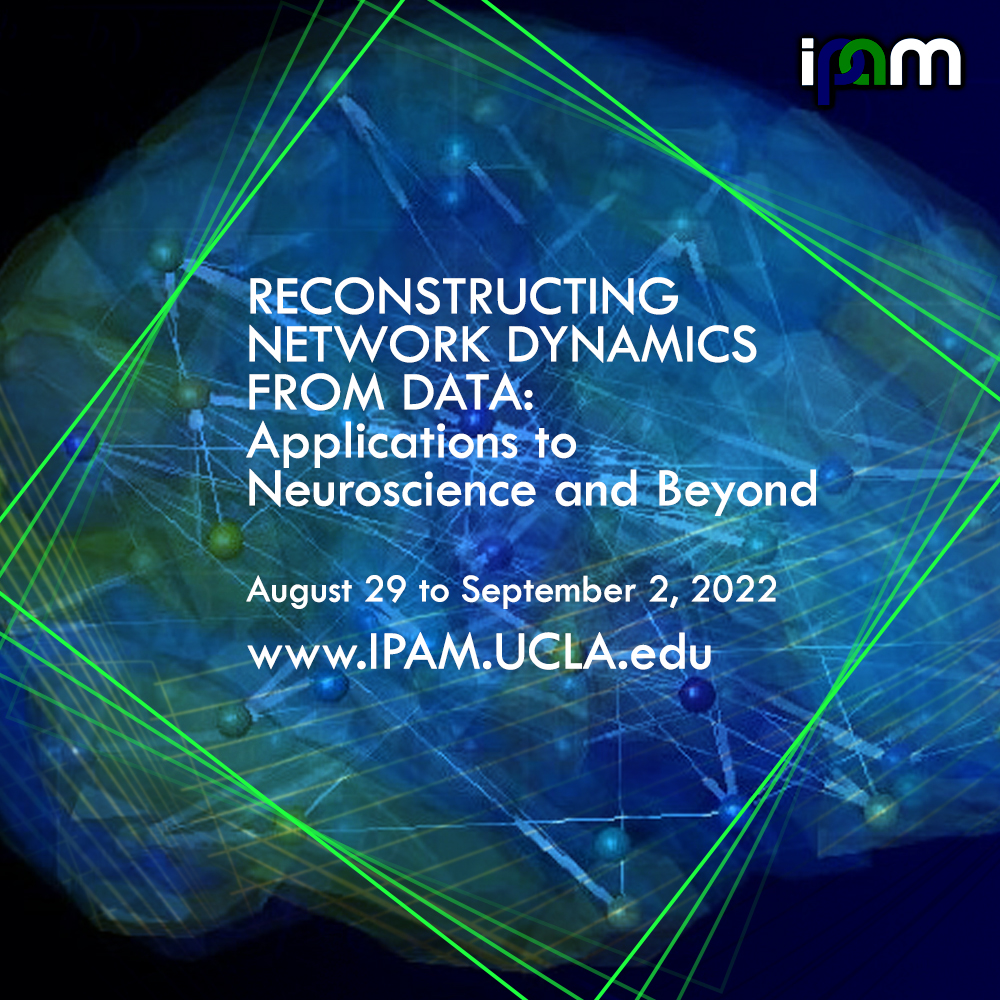Ernesto Estrada - Network bypasses sustain complexity
Presenter
August 31, 2022
Abstract
Recorded 31 August 2022. Ernesto Estrada of the University of the Balearic Islands (Illes Balears) presents "Network bypasses sustain complexity" at IPAM's Reconstructing Network Dynamics from Data: Applications to Neuroscience and Beyond.
Abstract: Real-world networks are neither regular nor random, a fact elegantly explained by mechanisms such as the Watts-Strogatz or the Barabasi-Albert models. Both mechanisms naturally create shortcuts and hubs, which enhance network’s navigability. They also tend to be overused during geodesic navigational processes, making the networks fragile against jamming. Why, then, networks with complex topologies are ubiquitous? Here we show that these models entropically generate network bypasses: alternative routes to shortest paths which are topologically longer but easier to navigate. We develop a mathematical theory that elucidates the emergence and consolidation of network bypasses and measures their navigability gain. We apply our theory to a wide range of real-world networks and find that they sustain complexity by different amounts of network bypasses. At the top of this complexity ranking we found the human brain, what points out the importance of these results to understand the plasticity of complex systems.
Learn more online at: http://www.ipam.ucla.edu/programs/workshops/reconstructing-network-dynamics-from-data-applications-to-neuroscience-and-beyond/?tab=overview
